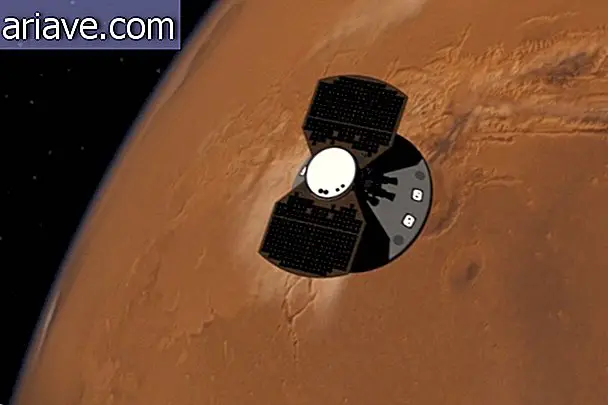Are aliens watching us like in a zoo?
Crossing an alien on the street would be totally unexpected, and you might look for the prank camera, already wondering how much they would pay you for the images to be shown on Sunday. Although very remote, this possibility exists, we just do not know how and if we will witness such an event. That is if our planet is not destroyed before, and by ourselves.

There are several theories about intelligent life on other planets. Considering all that are possible, within the context of alien existence, some are more plausible than others. And one of them raises the question: Have you ever imagined living in a zoo?
First, do they exist?
Enrico Fermi was an important Nobel Prize-winning physicist for his radiation discoveries, but he was also interested in issues a little farther than the elements he worked with. One day Fermi was with colleagues in a cafe when he questioned a comic strip he saw in the newspaper. In it, two aliens stole garbage cans from the city, and that made him think of such thieves.
He was not wrong to be intrigued by this, for in such a large universe could life have developed only on one planet? Estimates can be made easily, especially if you assume conditions that are not necessarily consistent. However, if we consider the number of stars in the Milky Way alone, we can already get an idea of the possible "luck" we had.

The numbers are astronomical, literally, when talking about the number of stars in the universe. According to not-so-unrealistic estimates raised by the paradox, there are 100 planets like Earth for every grain of sand in the world. Obviously, the distance from here to all these places is very large, and we still can't figure out how to travel that far in a reasonable time.
So think twice before you feel lazy about walking to the bakery, as distances in the universe are a big drag. According to Fermi's estimates, an alien civilization with a coherent space program could "colonize" our entire galaxy in 10 million years. It seems like a long time, and it really is, but given that the Milky Way has been around for 10 billion years, such a civilization is possible.
The zoo theory
Thus, as in Fermi's Paradox it is clear that the possibilities of alien existence are reasonable, many theories attempt to explain why they have not yet appeared. And Zoo Theory gives reasons for this, in a very peculiar way. According to her, the extraterrestrials already know of our existence and know us very well, only chose not to contact us, studying our behavior from afar.

MIT astronomer John A. Ball proposed this theory in 1973. Her name comes from the comparison that for them we are animals living in a zoo cage, so it's best not to even put your hand between the bars to touch. It can be dangerous. According to him, the extraterrestrials have a much more advanced technology than ours and chose not to interfere with our primitive society.
Within Zoo Theory, Ball considered two possibilities. In one, the aliens find us even interesting and monitor our activities casually; already in another, they were really interested in us, keeping a constant monitoring. In a sadder possibility for us, they know of our existence, but they don't give a shit, because we offer no threat. According to him, this is a less popular explanation, since we like to think that human civilization is the best of all.

Among the most popular answers to the paradox are that alien technology is still too primitive for such large displacements, or they have already evolved and declined, not even having time to reach Earth. Regardless, we keep looking at the sky expecting some kind of communication. Until we find it, we can consider ourselves the over-sufficiency of the universe. That until someone shows up and shows us the reality, of course.











